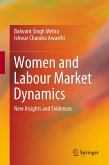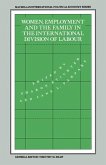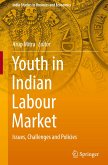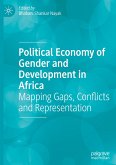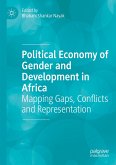This book addresses women's changing role in and contributions to the Indian labour market. It explores how feminist theories and frameworks have changed over time and gradually been supplanted by new ones. The book explores the structural shift in women's employment from farm to non-farm jobs in services and industries, both theoretically and empirically. Further, it examines the steady rise of women in high skilled or 'new economy' sectors like information and communication technology, electronics and telecom; and in low skilled work such as domestic work, particularly in urban areas. It also scrutinizes how emerging sectors of the economy are experimenting with new forms of employment by changing the temporal (part-time work, flexible hours), spatial (location of work) and contractual (temporary contracts) dimensions. Beyond analysing the above-mentioned aspects, the book discusses perennial challenges such as patriarchy, socio-cultural norms and gender-based labour marketinequalities across occupations as a 'glass ceiling' or 'sticky floor'.
One of the book's most important contributions is inclusion of detailed labour market statistics for women, with long-term trends and patterns, as well as comparisons with other countries and regions. In closing, the book highlights women's participation in economic and non-economic activities and related quantification issues, i.e. the invisibility of women's work, which remains a highly contentious aspect. Given its content, the book offers a valuable asset for a broad readership including academics, NGOs, and policymakers.
"The subject of low work participation rates for women has been of concern to economists, gender specialists and policy makers for decades. This book makes an important contribution in understanding the role of women in development and identifies some new policy directions that could be initiated to facilitate greater employment of women."
- Rohini Nayyar, Former Principal Adviser, Yojana Aayog, Government of India
"This book is timely and extremely relevant to the academic and policy debates in India. Given the puzzle of low and declining female labour force participation, it is critical to focus on where women work, beyond a supply-side perspective. In addition, efforts are needed to better measure women's work, which is typically underreported. In both these dimensions, this book makes an important contribution, which will be valuable for both academics and policymakers."
- Sher Verick, Employment Policy and Analysis Programme (EPAP) of the International Training Centre (ITC), International Labour Organization
"This book critically examines both theoretically and empirically the dynamics of changes in women's participation in and contribution to the fast-transforming Indian labour market. The aspects covered include the essential issue of how the new forms of employment are impacting temporal, spatial and contractual dimensions. An excellent and compulsory read for academicians and policy-makers involved in gender as well as labour economics."
- Ritu Dewan, Former President, Indian Association for Women's Studies; Former Director & Professor, Dept. of Economics, University of Mumbai
"The book is a required addition to the exiting literature on women's work and employment for its comprehensive and distinctive approach. It is a unique blend of macro and micro level perspectives and issues capturing statistics."
One of the book's most important contributions is inclusion of detailed labour market statistics for women, with long-term trends and patterns, as well as comparisons with other countries and regions. In closing, the book highlights women's participation in economic and non-economic activities and related quantification issues, i.e. the invisibility of women's work, which remains a highly contentious aspect. Given its content, the book offers a valuable asset for a broad readership including academics, NGOs, and policymakers.
"The subject of low work participation rates for women has been of concern to economists, gender specialists and policy makers for decades. This book makes an important contribution in understanding the role of women in development and identifies some new policy directions that could be initiated to facilitate greater employment of women."
- Rohini Nayyar, Former Principal Adviser, Yojana Aayog, Government of India
"This book is timely and extremely relevant to the academic and policy debates in India. Given the puzzle of low and declining female labour force participation, it is critical to focus on where women work, beyond a supply-side perspective. In addition, efforts are needed to better measure women's work, which is typically underreported. In both these dimensions, this book makes an important contribution, which will be valuable for both academics and policymakers."
- Sher Verick, Employment Policy and Analysis Programme (EPAP) of the International Training Centre (ITC), International Labour Organization
"This book critically examines both theoretically and empirically the dynamics of changes in women's participation in and contribution to the fast-transforming Indian labour market. The aspects covered include the essential issue of how the new forms of employment are impacting temporal, spatial and contractual dimensions. An excellent and compulsory read for academicians and policy-makers involved in gender as well as labour economics."
- Ritu Dewan, Former President, Indian Association for Women's Studies; Former Director & Professor, Dept. of Economics, University of Mumbai
"The book is a required addition to the exiting literature on women's work and employment for its comprehensive and distinctive approach. It is a unique blend of macro and micro level perspectives and issues capturing statistics."
"The book makes crucial contribution to raise the bar of labour studies. I strongly recommend this book as the inputs provided by the book can be of great help for the policy makers to frame economic, welfare, social protection, social security measures for women workers, legal fraternity to humanise labour jurisprudence by revisiting 'labour codes', trade unions and women's rights activists to decide their action agenda." (Vibhuti Patel, The Indian Journal of Labour Economics, Vol. 63, 2020)


